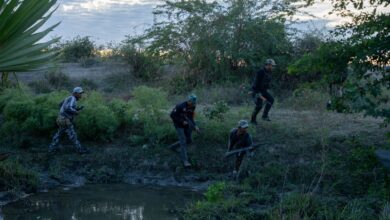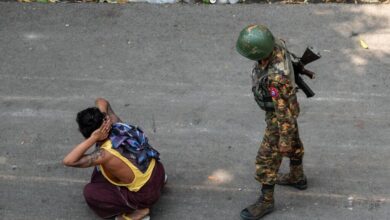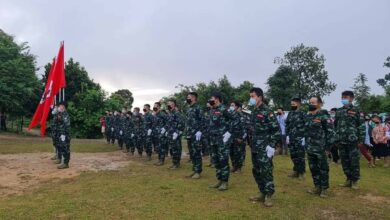Myanmar
-
 Thura MaungFebruary 15, 2024
Thura MaungFebruary 15, 2024Kawlin retaken by junta forces after three months in resistance hands
Resistance forces say that air and artillery assaults forced them to finally withdraw from the town after nearly two weeks of intense fighting
Read More » -
 Jessy WolfFebruary 15, 2024
Jessy WolfFebruary 15, 2024Myanmar military escalating air and artillery strikes in Kyaukphyu, locals say
Junta forces appear to be concentrating firepower near the site of vital investment interests in Kyaukphyu, with devastating consequences for civilians in the area
Read More » -
 Myanmar NowFebruary 15, 2024
Myanmar NowFebruary 15, 2024AA seizes Kyauktaw township, sinks another junta ship in Rakhine State
The AA immobilised two warships outside Minbya and continued fighting regime forces in Kyaukphyu only a day before capturing the Military Operations Command No. 9 (MOC-9) headquarters in Kyauktaw
Read More » -
 Jessy WolfFebruary 14, 2024
Jessy WolfFebruary 14, 2024Myanmar junta to begin conscription drive in April: spokesperson
The regime has sought to play down the impact of its decision to start forcibly recruiting new troops
Read More » -
 Nora PyaeFebruary 14, 2024
Nora PyaeFebruary 14, 2024Resistance fighters seize military’s last base in Shadaw Township, Karenni State
Following the launch of Operation 1111 and takeover of Mese Township in early November, Shadaw is the second township to fall fully under the control of anti-junta forces in Karenni State
Read More »